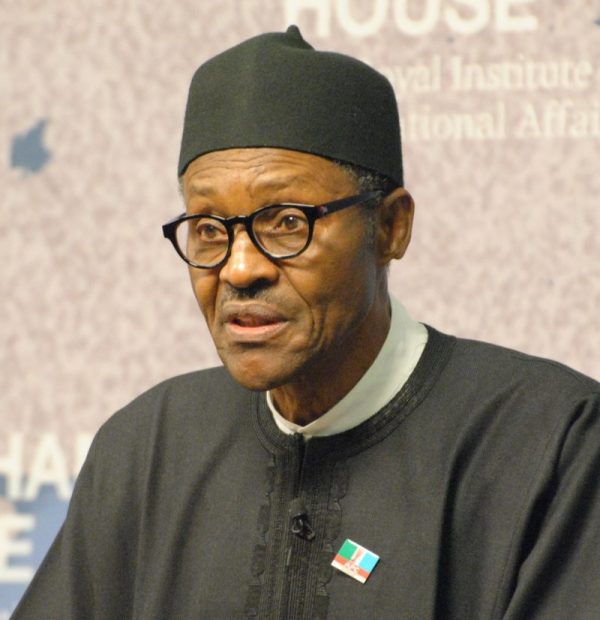The Nigerian Labour Congress has called on President Muhammadu Buhari to make amendments in his economic policies because the present policies have failed.
Economic recession has been on the increase since this present administration took over and has led to job losses, increasing unemployment rate and hunger among several socio-economic groups.
The NLC noted that if the President’s economic policies were effective, unemployment rate and hunger would have reduced among Nigerians, and companies wouldn’t have had it so bad to survive.
According to a recent report by the National Bureau of Statistics, unemployment rate grew from 12.1 per cent in the first quarter of 2016 to 13.3 per cent in the second quarter, while about 1.5 million Nigerians have lost their jobs in the past one year.
“Accordingly, out of a total youth labour force of 38.2 million (representing 48.7 per cent of total labour force of 78.48 million), a total of 15.2 million of them were either unemployed or underemployed in Q1 2016, representing a youth unemployment rate of 42.2 per cent,” the report added.
The Director-General of the Manufacturers Association of Nigeria, Dr. Frank Jacobs, said that the tough policies and challenges have led to the shutting down of manufacturing companies and hampered the development of the country.
Jacobs, who said there had been a face-off between the association and the Central Bank of Nigeria over forex scarcity, disclosed that MAN would be meeting with the apex bank this weekend.
NLC General Secretary, Peter Ozo-Eson, have called on the government to have a review and restrategise new ideas on how to pull the economy out of its sinking ship because the untold hardship on the masses are leading many persons to death and frustration.
They have also called for his cabinet to be reschuffled claiming that the present people on board are not professionals hence have no idea of how to run an effective economy.
But the National President of the Nigerian Association of Chambers of Commerce, Industry, Mines and Agriculture, Chief Bassey Edem, also lamented on the pathetic situation and said that the Buhari led administration has no laid policies but is rather running the country on a trail and error basis.
Citing the delay in the passing of the 2016 budget, among other factors, Edem said the economy had been bad because the President had no interest in making it work.
He said, “Before we talk about economic policies not working, are there even policies in the first place? What are this administration’s economic policies? There is none. This is a government that just passed the budget into law. This is October already; they ought to have gone to the National Assembly to start working on next year’s budget.
“The President has said it many times that as far as he is concerned, he only wants to fight corruption and insecurity, and he is doing fine there. He has no plans for the economy.”
“The Central Bank of Nigeria has only succeeded in pushing the exchange rate to N420 per dollar, while the Minister of Finance (Mrs. Kemi Adeosun) said recently that they were going to inject N350bn into the economy for capital projects. These are not policies. A policy gives a guideline and sets an organisation in a particular direction. That’s not the scenario here.”
They also called on the government to relax on some of its tough import restrictions and to allow flexibility so as to provide the availability and options for the average Nigerian
“The rate at which the government is borrowing from the domestic market is too high and the banks are not encouraged to loan money to business owners when they can invest in treasury bills.
“As of today, there is no blueprint or economic direction of the government. If there is no economic direction, then how do you expect others to key in to achieve your goals?”
In view of the recent happenings, the Nigeria Employers’ Consultative Association, an Umbrella body for all employer’s on the private sector have also said that with the current economic policies and situation, more job losses are imminent and the situation is likely to get tougher.
The Director General of the association, Mr. Segun Oshinowo, said since the economy had yet to rebound, it was expected for more people to lose their jobs.
He said, “It should be expected that more job losses will come. For example, we just received a letter from one of the multinational companies in the country, which is a member of NECA. The company’s management said its production capacity had gone down, and as a result of that, it is sacking many of its workers.
“I was also talking to the managing director of one of the biggest pharmaceutical companies in the country recently. The man lamented that it had been difficult to get foreign exchange to run the company. He said more workers would soon be sacked.
“Many more companies will follow suit because the economic condition is still bad. They will find ways of cutting costs, and one of the ways is to sack workers, so more job losses are expected.”
Mr Segundo also advised that government should create policies that would be beneficial to private sectors as to enable them remain in business and keep the people employed.
However, in order to boost the economy, he urged state governments to pay their workers’ salaries. He said the payment of salaries would increase consumer expenditure, which in turn would boost the economic growth rate.
While different groups are calling on the government to take a positive decision in order to end the recession, the government has said that they are doing everything possible to revive the economy.




 Premier League
Premier League